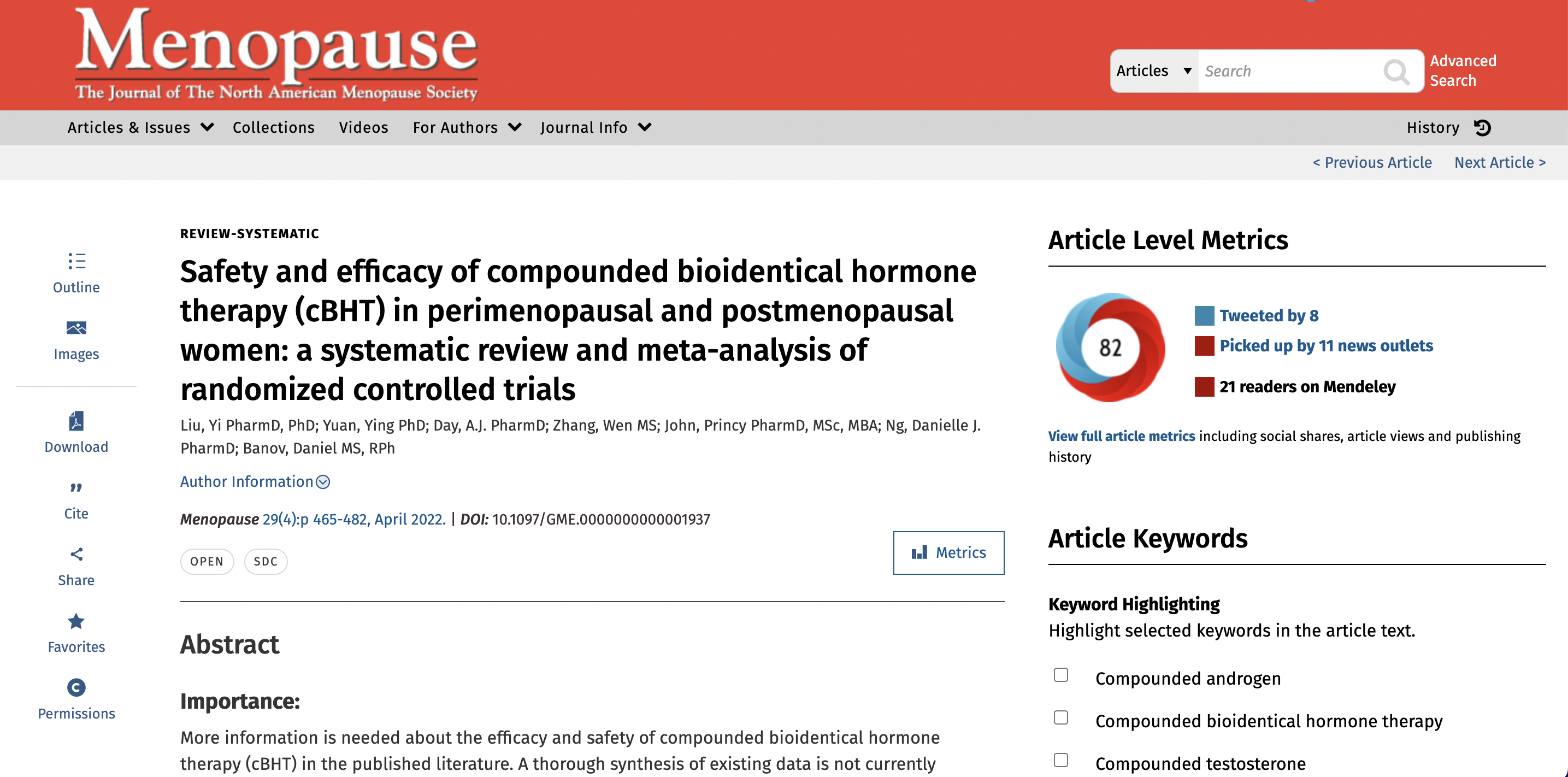Hot flashes, night sweats, mood changes - in older women, we know these as the classic signs of menopause. But what about the many women in their mid-40’s who experience mood disorders and other hallmark symptoms well before their last menstrual period? Perimenopause may be the cause, a recent article published in The Wall Street Journal reveals, and hormone therapy treatments may be able to help.
According to the article, mood disorders are among the most common symptoms of perimenopause, a transitional phase marked by irregular periods and fluctuating hormones. Yet many women are unaware they are in this early stage, let alone that hormone therapy may help reduce their symptoms when antidepressants and other first-line treatments are unsuitable.
A number of recent studies suggest that hormone therapy can reduce or prevent mood disorders in some women, especially those who are sensitive to fluctuating hormones. These include the results of a 2018 randomized-controlled trial published in JAMA Psychiatry, which reported that, of 172 female participants, “those who received hormone therapy [as opposed to a placebo] had a more than twofold reduction in the risk of developing depressive symptoms.”

Additionally, a study published last month in the journal Psychoneuroendocrinology found that “hormone therapy was associated with lower perimenopausal anxiety and depressive symptoms when compared with women who didn’t receive the treatment.”
And one of the biggest benefits of hormone therapy, adds research professor of psychiatry David R. Rubinow, is how quickly patients respond to the treatment. “‘For the most part, you can tell [if it is working] within a week,’” he says. It’s also effective: his studies on the subject consistently show that two-thirds of women respond to hormone therapy.
With more than one-third of perimenopausal women experiencing depressive symptoms, it is imperative that patients continue having access to these life-changing hormone therapies. But for the millions of women who rely on compounded hormone treatments, that access may be under threat. The FDA has signaled that it may consider imposing new regulations on compounded hormones based on a flawed report that it commissioned. If you have benefitted from compounded hormones, we encourage you to lend your voice to the cause by sharing your story and contacting your local representatives.





